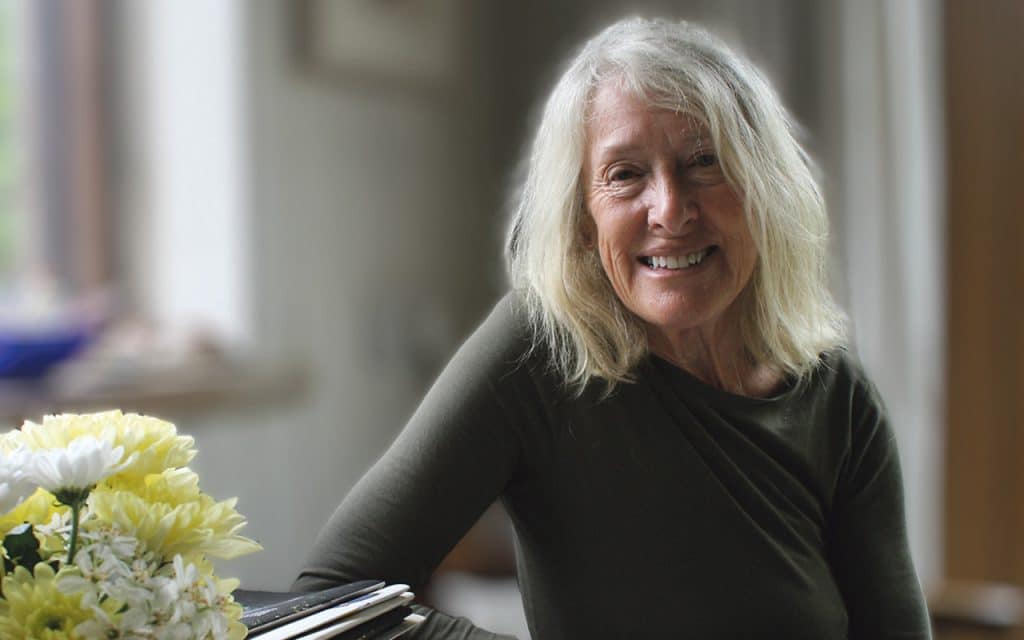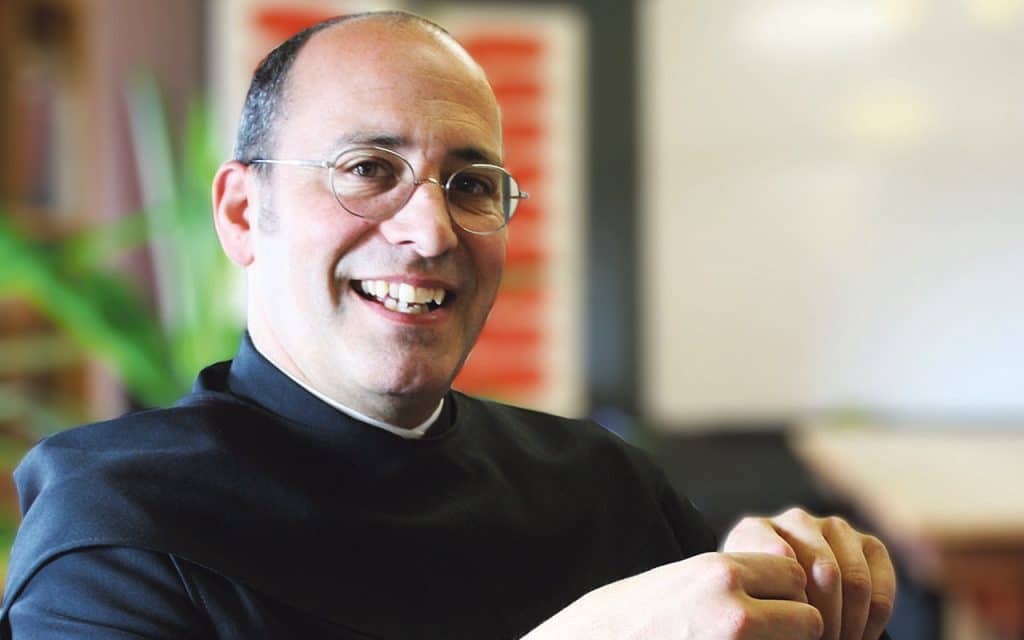As the song goes ‘Count your life by smiles, not tears’, a message reinforced by 81-year-old Patty Mullaney, drawing on her years of wisdom. Most days Patty feels about 35, but on the days she feels closer to 90, she says “It really does help to smile”. In between walking her dogs and heading off for a game of pickleball in Clonakilty, she stops for a chat with Mary O’Brien, sharing how life can become more beautiful with age.

Patty is an artist, who moved to West Cork with her late husband Tom and daughter Sam in the early 80s. The couple had built up a successful pottery together in Northern England before the draw of the West Cork countryside and close friends took them across the water.
They met and fell in love while they were both teaching at Oldham School of Art in Northern England. Tom was head of the pottery department while Patty, not long out of art college, taught fashion design, as well as a range of other subjects. “The first winter was very cold, so I spent a lot of time keeping warm by the kiln,” shares Patty laughing. They got married the following year.
Painfully shy for more than half of her life, well into her fifties in fact, with maturity came a sense of self that helped Patty become more comfortable in her own skin. “I think life is more difficult when you’re younger, as you’re desperate to carve out a niche for yourself in the world,” she says.
Today it’s difficult to imagine this gentle and elegant lady, who looks and acts much younger than her years, as ever being a wallflower. “I just decided that I didn’t care what people thought about me anymore,” she laughs. Although she does still get anxious occasionally. “Breathing exercises help when I’m lying awake at night.”
One of three children, Patty grew up in an old gamekeeper’s cottage on an estate that had been divided, at the heart of the Cotswolds. Her father was an engineer, working nine miles away in Gloucester city. He was one of the few with a car in the rural area where they lived. Post World War II, Gloucestershire county housed a number of displaced persons camps, the closest a few miles from Patty’s house. She recalls meeting children from those temporary homes on the local school bus. It was a challenging time in the UK socially, as well as economically, as returning soldiers tried to integrate back into life.
Patty’s shyness perhaps stems from childhood: Her father’s position isolated the family from the local community – their family was better off than most in a time of austerity – and her mother, who was young and inexperienced, fostered a sense of competitiveness rather than co-operation in her children. Patty’s escape was the great outdoors – losing herself for hours in the countryside with her dog – and later school. “We weren’t a particularly happy family,” she says, recalling the security bars on the windows of their home.
After attending a private school in Cheltenham, Patty was accepted into art college, specialising in fashion design and training as a teacher. Moving up North into a working class industrial area in Greater Manchester, after getting her first teaching job, was an eye-opener for the young woman.
“It couldn’t have been more different than where I grew up in the countryside,” she says. “There wasn’t so much as a blade of grass!” But the warmth and good humour of the Northerners made up for the grim landscape, and it became home, for a while at least.
A holiday in Ireland in the rain then set the wheels in motion for a move to West Cork, which had become a haven for creatives, like their friends and fellow potters, Jane Forrester, Peter Wolstenholme and Martin Branch.
Patty and Tom put their home on the market in England, after purchasing a rundown property being rented out as storage, in a field close to Timoleague. “It was a bit mad but it’s the type of thing you do when you’re young isn’t it,” says Patty.
After buying a gas kiln – there wasn’t enough electricity to power the two large kilns they brought with them – the couple started up their pottery again from scratch. “We arrived just in time for the recession,” says Patty. But they had land to work – growing was a shared passion – and their range of ceramic brooches – unintentionally promoted by a newsreader – and wall plaques proved popular with an Irish public whose desire for artistic expression was growing. Later Tom’s beautiful range of ceramic otters, inspired by real-life otters close to home, became much sought-after.
Outside of work, the couple renovated their cottage and developed their little patch of land together, often working until sundown making raised vegetable beds and planting trees. They also became keen sailors, bringing a Wayfarer dingy over from the UK.
Life became more challenging after Tom developed Alzheimer’s but Patty says those years looking after her husband taught her patience. “I learnt how important it is to give people time to say what they need to say,” she shares.
Patty still gardens. Her home is close to the Arigideen river, which supports a diverse range of wildlife such as the protected otter. She worries about the illegal hunting that threatens their existence. The decline in our insect population is also a cause of anxiety. “It was so different when we first moved here,” she recalls. “The place was teeming with insects; the most beautiful moths, which you just don’t see anymore.” But she does what she can, standing up to hunters, planting wildflower seeds to attract pollinators, and helping out with her local community garden.
Although it took her years to handle the cold, she now sea swims daily all year round, a habit she believes contributes to her good health. “I haven’t had a cold in years.” She also only drinks alcohol only occasionally.
She credits her agility and posture to her pilates’ classes with Lorraine Dufficey and “shaking it all out while the kettle is boiling and no-one is watching!”
When she’s not slamming a ball across a net in Clonakilty, this dynamo could be out helping a friend move his sailboat. And when she’s not moving her body, she’s exerting her mind, playing bridge in a local club or sudoku at home on the kitchen table.
Patty’s life is full but not rushed. Committed to living well in the present, she keeps active and finds joy in the everyday simple pleasures of life. “I’m not trying to be anything anymore,” she says. “There’s a freedom in that.”



